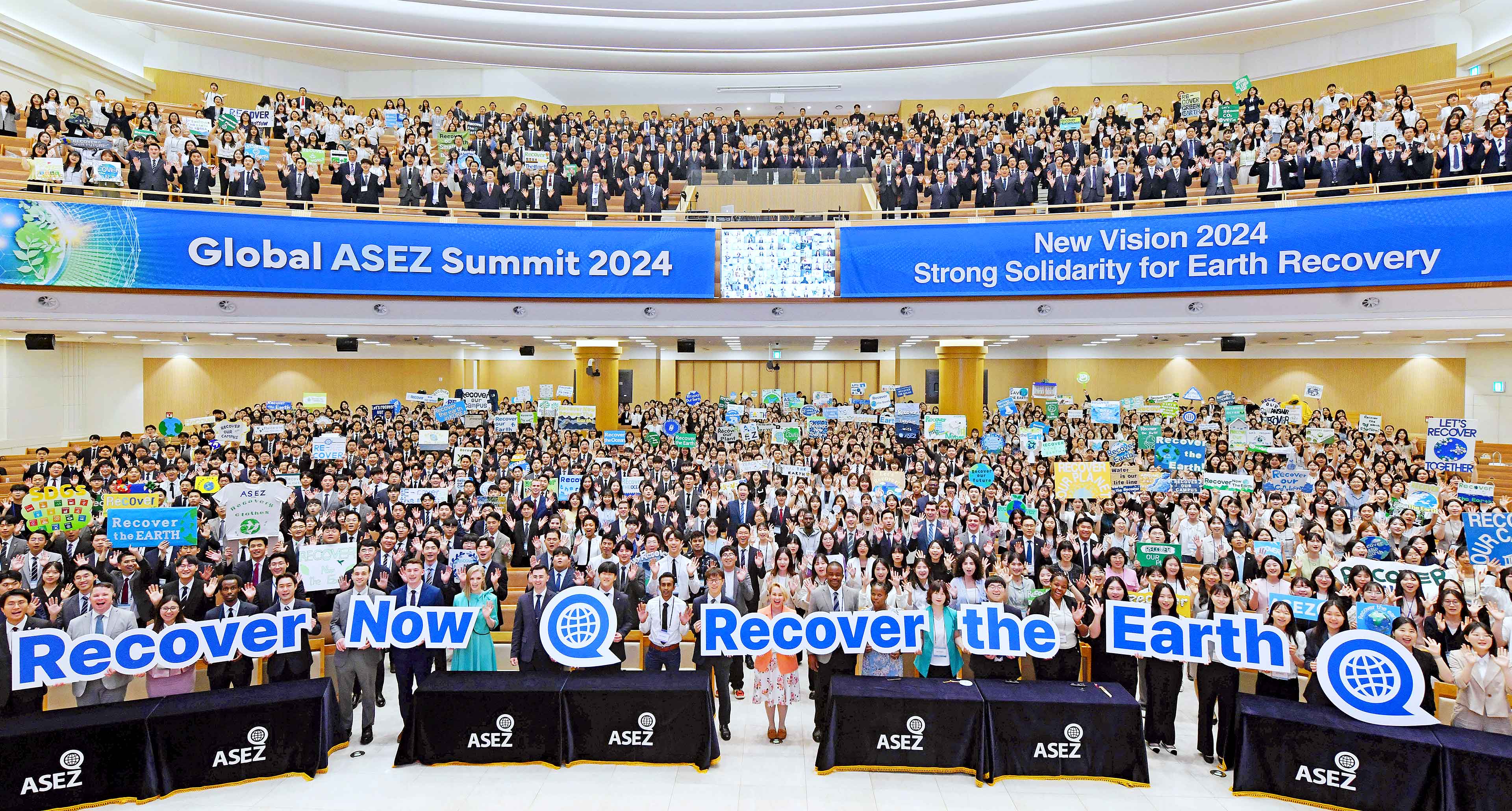On June 30, the Global ASEZ Summit 2024 was held to implement the Earth Recovery Project. The Summit, which was held in the largest scale ever, was attended by students from prestigious universities in Korea and abroad including Harvard University, MIT, and Seoul National University. Approximately 2,000 people attended to grace the event: Lao Ambassador to Korea; Yi Jun, Descendant of Emperor Gojong of Korean Empire and the President of King Uichin Memorial Association; Kim Ki-jung, Chairperson of Suwon City Council; Kim Joon-hyun, Executive Vice President of JTBC Broadcasting Company; Mo Sae-yeon, Director of Net Zero 2050 Climate Foundation.
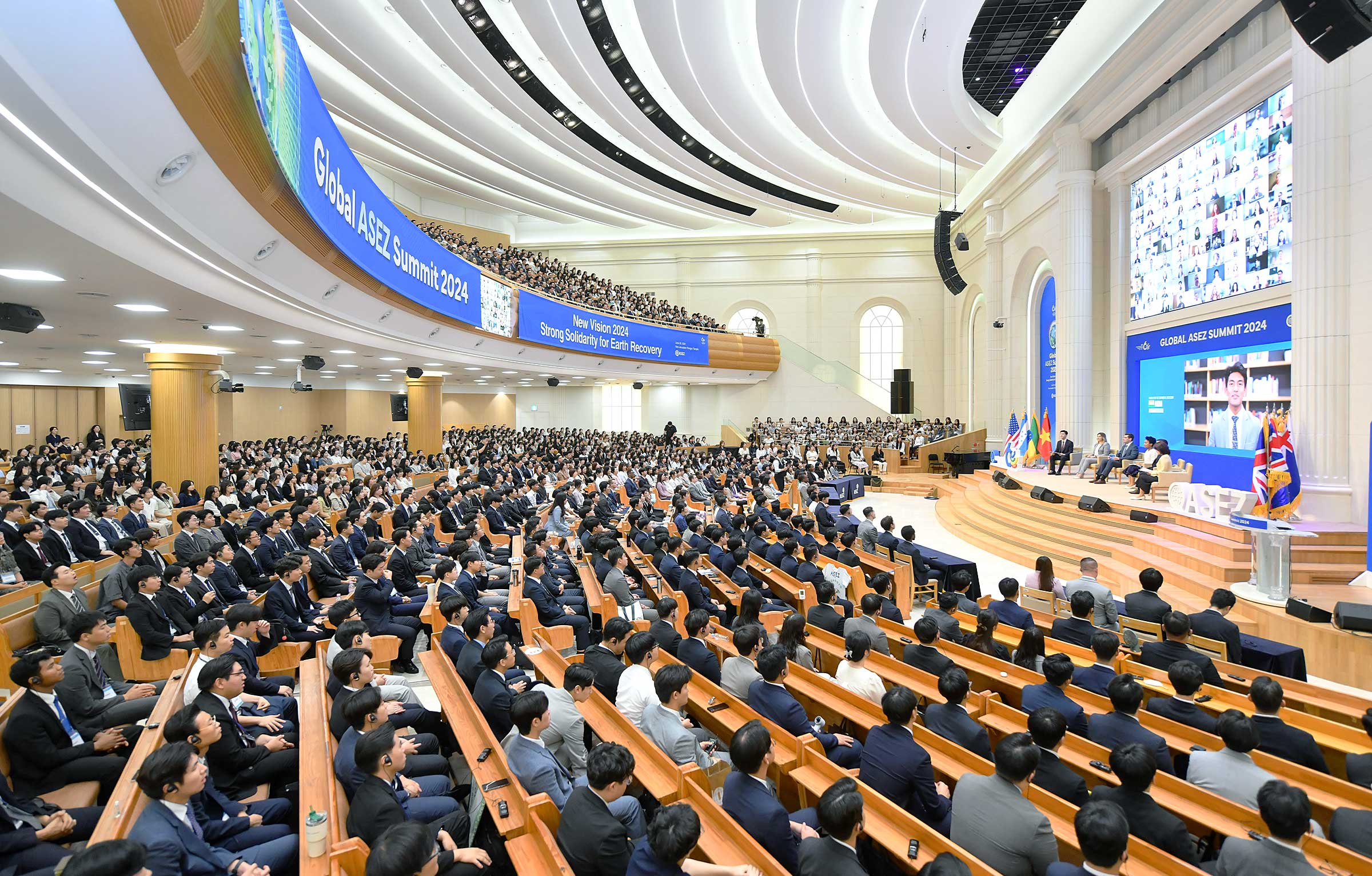


At 1:30 p.m., the event began with a pre-ceremonial event, followed by an opening ceremony and a theme presentation session. The performances by ASEZ members and the on-site performance by a sand art expert heightened the atmosphere of the event. “Let’s Save the Forests,” one of the self-composed choral songs of ASEZ was honored with UNCCD Executive Secretary’s Award. Next, the World Mission Society Church of God General Pastor Kim Joo-cheol heralded the beginning of the event, emphasizing, “We’ve come together for the future, regardless of country or region. You are pioneers who lead a great change.”
Key figures’ congratulatory messages for the ASEZ Summit followed. UN Secretary-General António Guterres wished success for the Summit in his congratulatory message, commending ASEZ’s dedication and anticipating influential results. Additionally, Philippine and Honduran ambassadors to Korea, the Peruvian Prime Minister, Speaker of the Congress, and Minister of Development and Social Inclusion, the Brazilian Member of National Congress, futurist Thomas Frey and other key figures sent congratulatory messages.
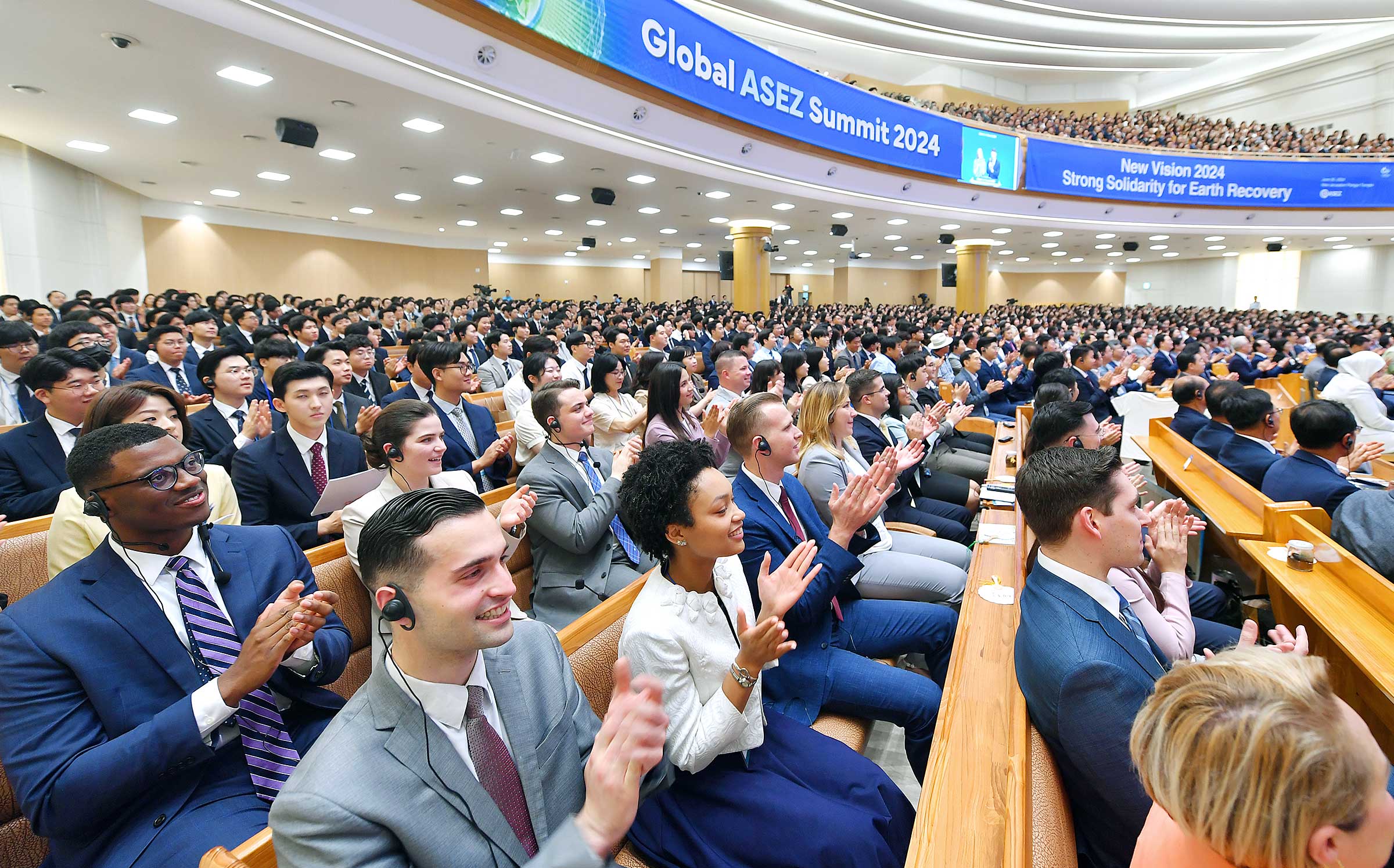
In particular, H.E. Songkane Luangmuninthone, Lao Ambassador to Korea, expressed his support for ASEZ, saying, “The important issues the world is facing require integrated and cooperative efforts. I hope that the Summit will serve as an opportunity to inspire actions for a better world.” Choi Bong-hwan, Chairman of the National Association of Local Council Chairmen, Korea, said, “When your creative and innovative ideas are translated into practical actions, the influence will change society as a whole.”
Earth Recovery Project
The Earth Recovery Project, which was announced with much attention that day, is ASEZ’s new vision for preventing desertification and restoring the global environment.

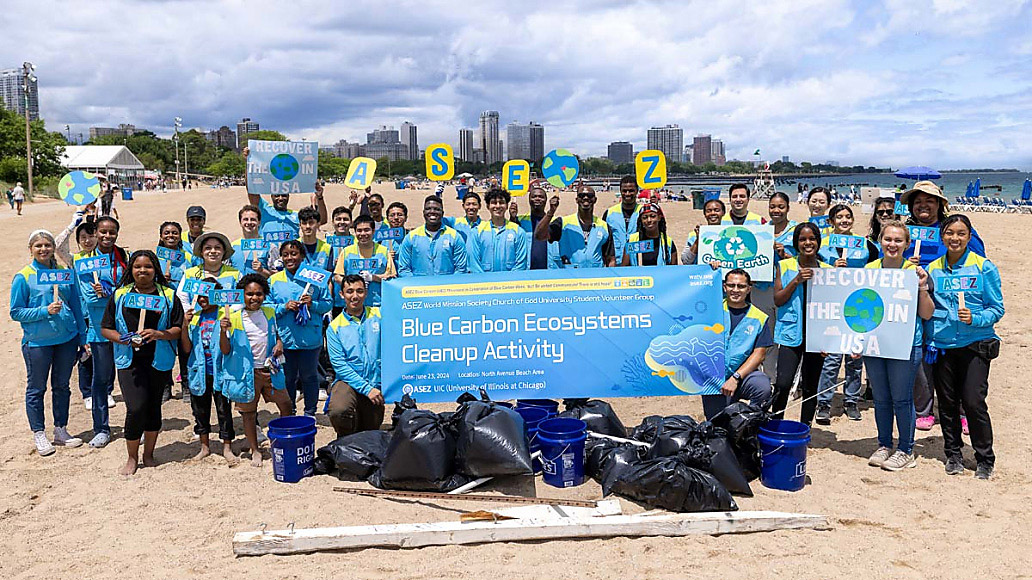
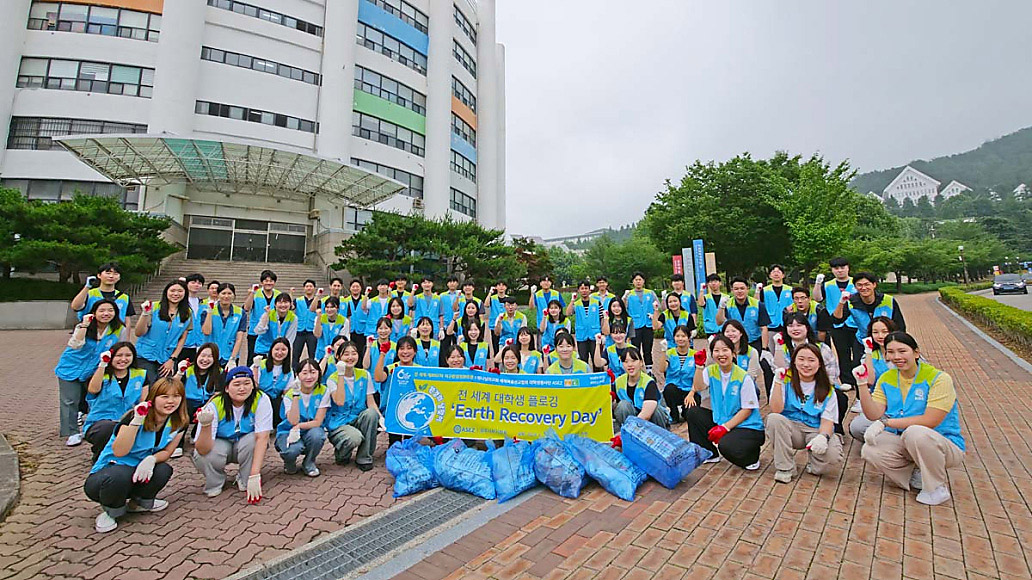

The theme of Environment Day 2024 was “Land Restoration, Desertification and Drought Resilience.” Desertification and land degradation are the most serious environmental issues. In response, ASEZ carries out the Earth Recovery Project globally to establish a network that will restore and preserve ecosystems, centering campuses. Through this project, ASEZ implements preventive and recovery measures to combat desertification, and ultimately restore and preserve ecosystems around campuses in cooperating with local communities. The four major activities of the Earth Recovery Project are reforestation, conservation of biodiversity, reduction of pollution, and meeting with policy makers. Under these goals, ASEZ planted trees in Mexico and South Africa, removed invasive plants in Pretoria, South Africa, held biodiversity seminar at Seoul National University, Korea and global environmental forums.
Many prominent figures expressed their support for this project. After the introduction of the Earth Recovery Project, the global solidarity was formed at the ceremony for supporting signatures, transcending nationalities, races, languages, and cultures. Based on today’s strong solidarity, ASEZ desires to establish a sustainable and practical network to combat desertification.
Expert Lectures: “Climate Crisis and Carbon Neutrality” and “Climate Refugees, the Blind Spots of Refugees”
The expert lecture began with the subject, “Climate Crisis and Carbon Neutrality” by Cho Myung-rae, Chair Professor of the Carbon Neutral Department at Dankook University Graduate School, the Former Minister of Environment. Chair Professor Cho who emphasized the integrated response to climate crisis for carbon neutrality, emphasized, “Nature is the entity capable of fully capturing the carbon that has already been emitted. To achieve this, we need to restore ecosystems so that nature can become more resilient to climate change.”
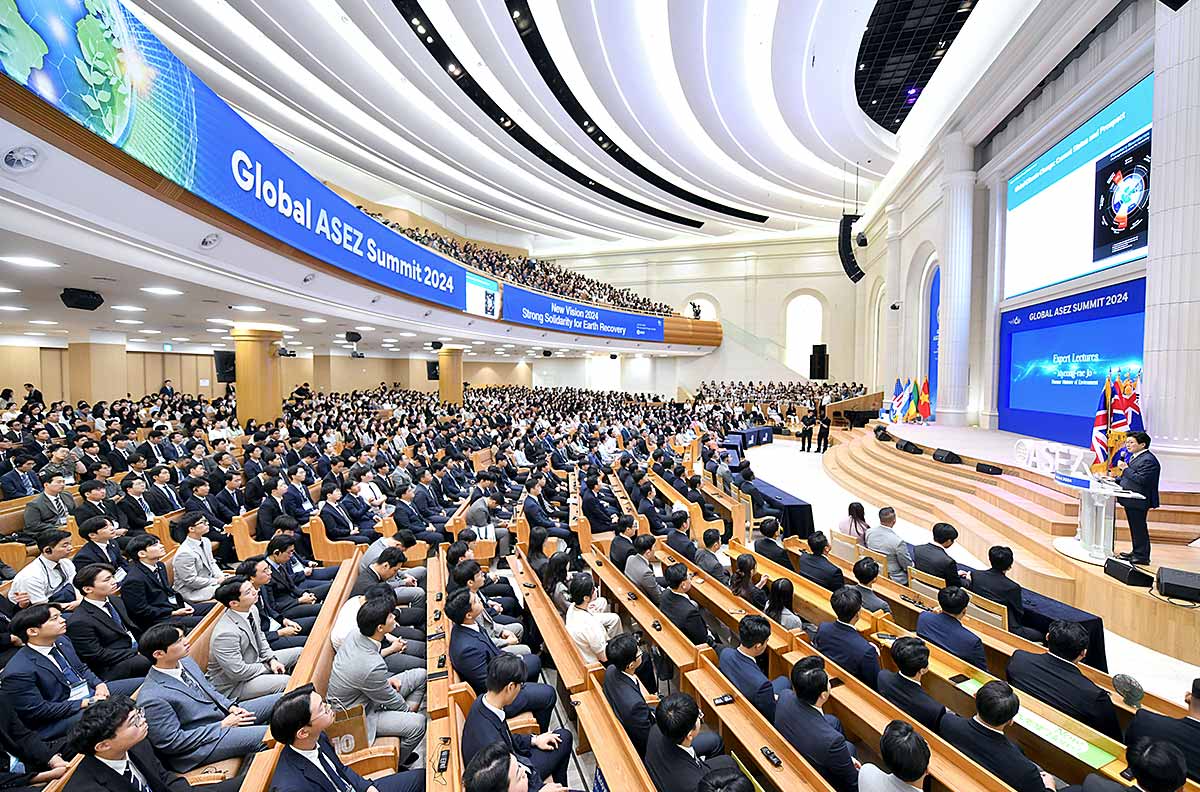


Next, Chris Melzer, Senior External Relations Officer of the UN Refugee Agency (UNHCR) gave a lecture on “Climate Refugees, the Blind Spots of Refugees.” Chris Melzer gave an in-depth and professional lecture, focusing on the issue of climate refugees, which is getting worse every year due to climate change.
After the lecture, when Nas Thomas from Harvard University asked him about how we can contribute to carbon neutrality through social science as well as natural science, Professor Cho replied, “We need a medium to long-term system based on the humanities and social science. The solution is to provide systematic and institutional support at the community level, such as using local energy and reusing waste resources.”
ASEZ Discusses Environmental Issues on Six Continents and Adopts a Resolution
During the presentations by representatives from six continents, the environmental issues, pending challenges, and solutions of each continent, as identified through pre-conference discussions, were shared.

In South America, forests are being destroyed in various regions in Amazon. In Africa, soil loss is leading to significant biodiversity loss. In Asia, soil pollution is being caused by reckless garbage disposal. In Europe, carbon emission and pollution are driven by fast fashion. In Oceania, habitats are being destroyed due to wildfires, and in North America, land degradation is resulting from climate change and hurricanes.
Then, representatives of each country and continent, both online and offline, presented six agendas as solutions to these problems. The six proposed agendas were adopted, following a vote by 110 ASEZ representatives from around the world who participated online in real time.
The agenda adopted through ASEZ’s Earth Recovery Project is as follows. ▲South America: Restoring the Amazon and Creating Networks for University Students in 9 Countries in South America ▲Africa: Restoration of Peatlands (Peatland: Land where plant debris has accumulated without decomposing over thousands of years) ▲ Asia: Education and Campaigns for Youth in ▲Europe: Green Consumer Education Recognized by UNESCO ▲Oceania: Removal and Management of Invasive Plants for Habitat Restoration ▲ North America: It is to mobilize civilians for reforestation and to raise awareness.
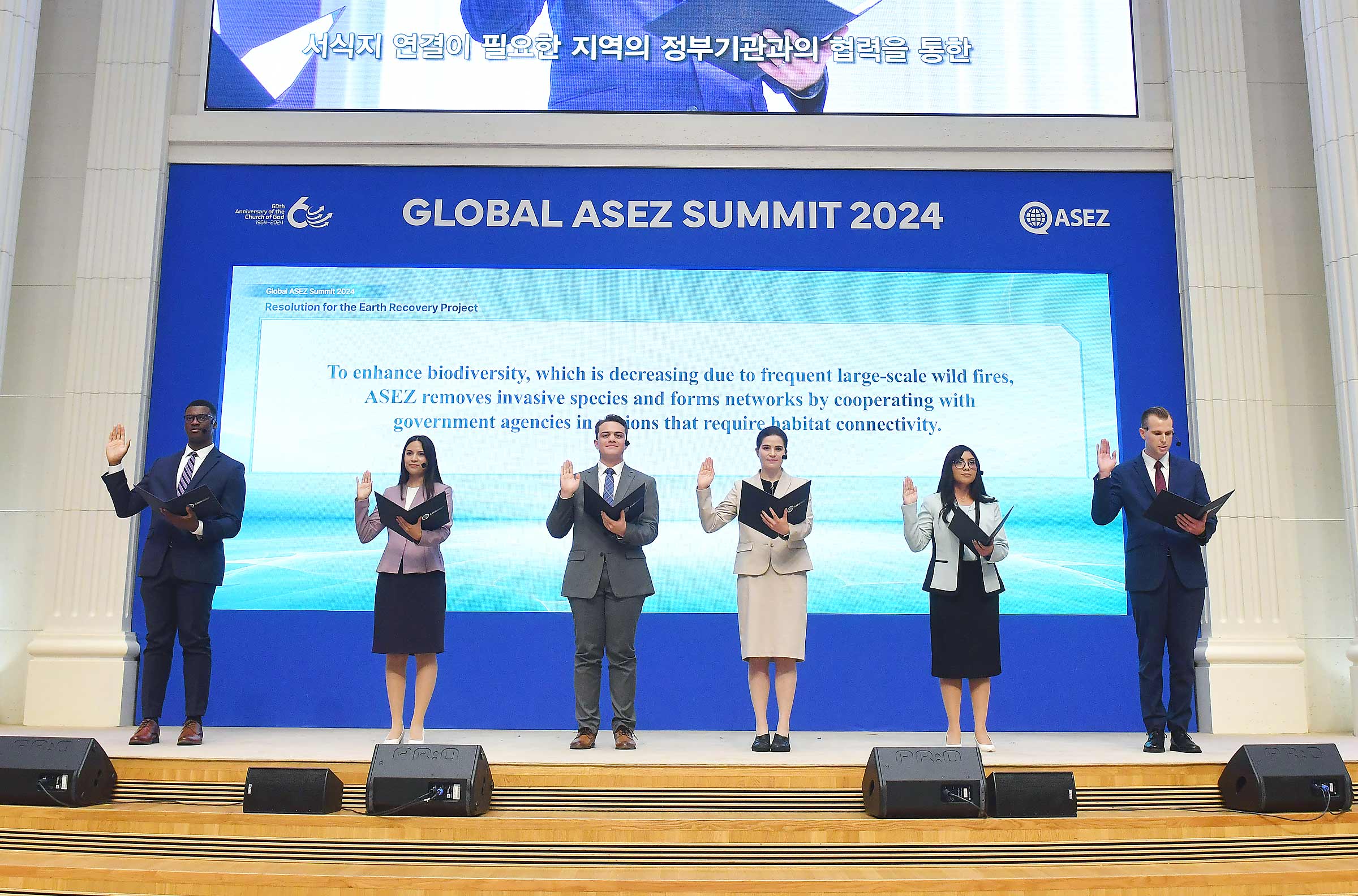
This led to a practical resolution. Based on the above agenda, a resolution for the Earth Recovery Project was selected and recited. This resolution emphasizes the new vision and the urgent need for strong solidarity in addressing the rapid decline of Earth’s environment due to climate change and desertification. It calls for practical and sustainable environmental recovery activities across 20,000 campuses worldwide, activating education, practices, and partnerships in areas where urgent change and improvement are needed. Based on today’s resolution, ASEZ will implement global environmental restoration activities.
ASEZ Summit Serves as a Center for Various Stakeholders
Aya Hamed, an ICT consultant affiliated with the Egyptian government, who participated in the overall event, said, “It is amazing to see the activities of university students around the world. Given the severe impact of climate change in Egypt as well, the government is implementing measures to address it. I support your activities, Please keep it up.”
Jang Jae-hee from Hankuk University of Foreign Studies said, “Environmental issues cannot be solved by a single country or a certain age group alone. First and foremost, it is important for young adults, who are the leaders of the future, to be aware of environmental issues and to cultivate a sense of ownership toward addressing them.” Cho Tae-wook said, “I realized that while scientific and engineering solutions are important methodologies for addressing environmental problems, expanding social participation raising awareness are crucial for these solutions to be effectively realized.”
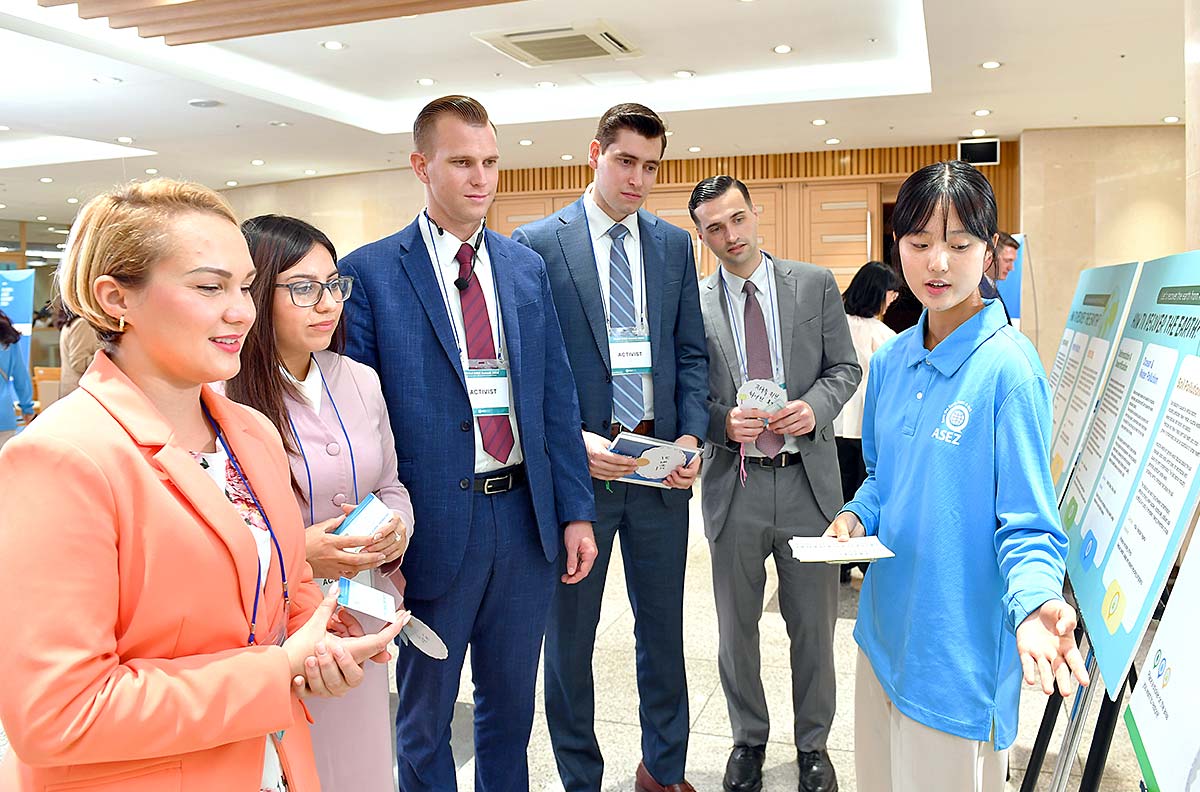
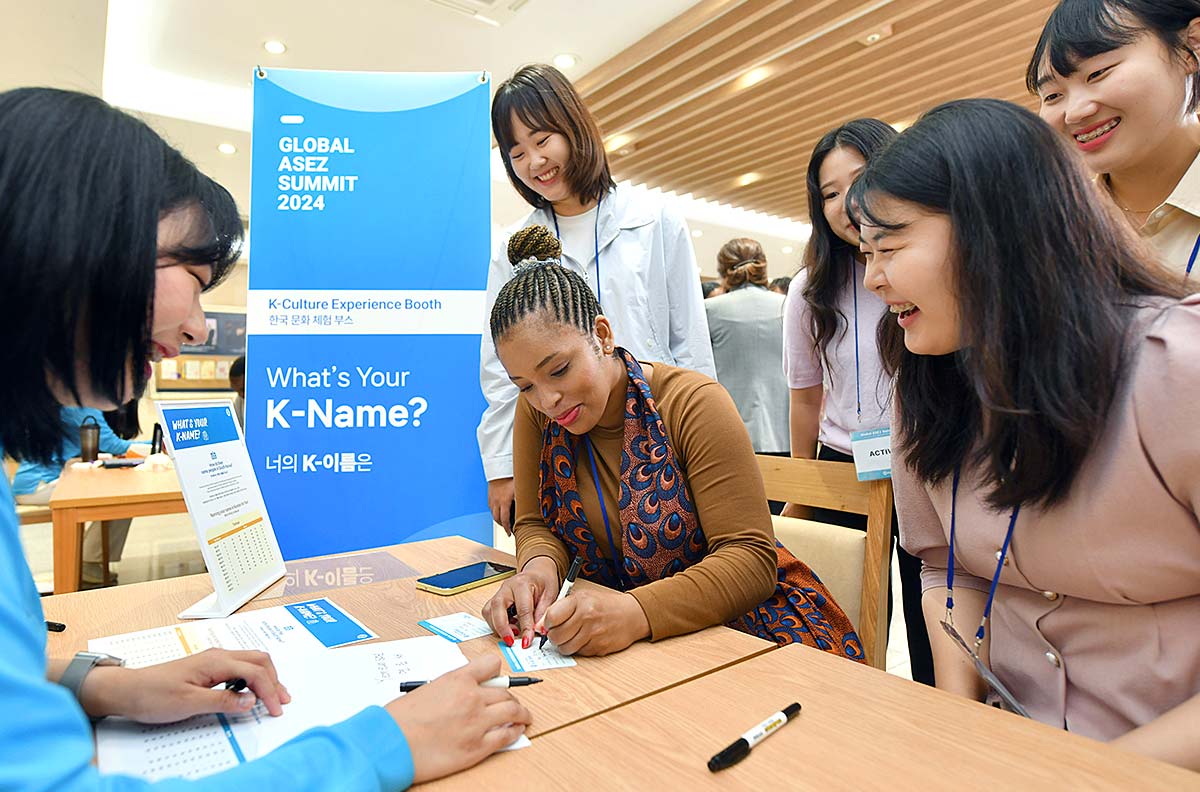

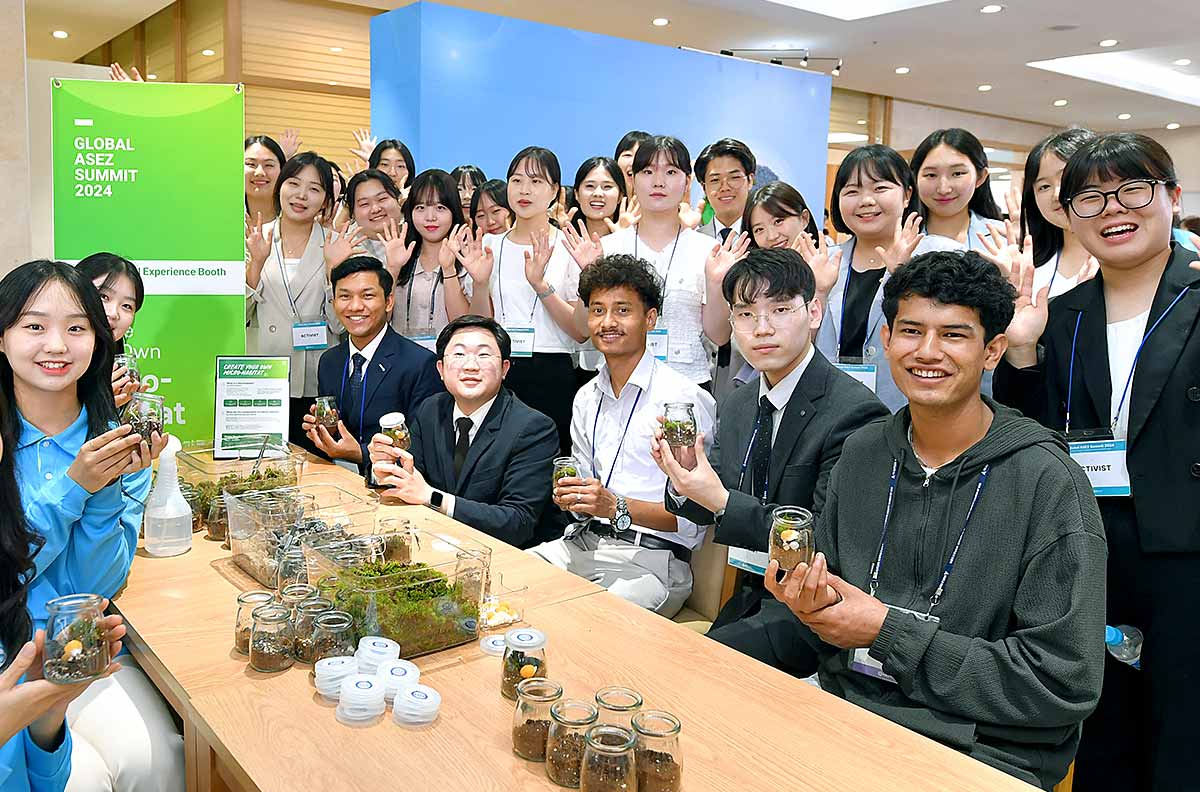
At the Summit 2019, ASEZ adopted the Joint Declaration for a Crime-Free World. In 2023, students from 500 universities around the world gathered in Korea to discuss creating a sustainable society and environment. As a result, they adopted the U500 Joint Declaration. This year, ASEZ played a pivotal role in bringing together global stakeholders by adopting the resolution for the Global Environmental Restoration Project.
“Practice is more important than knowledge. I hope that today’s resolution will bring meaningful change and hope to humanity through its implementation,” as the presider said, we anticipate that the hope ASEZ has planted will soon bloom and bear fruit.
